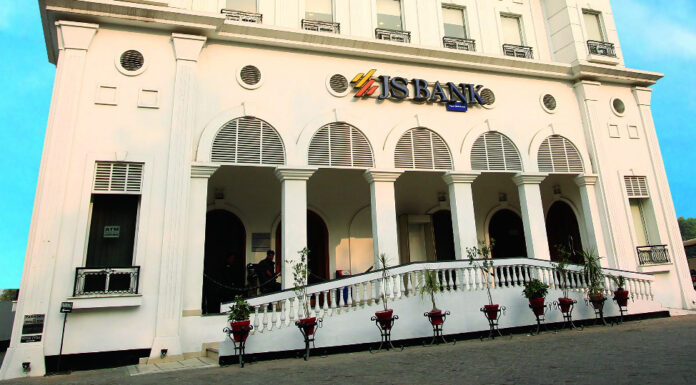KARACHI: Acquiescing to the demands of minority shareholders, JS Bank Limited has decided that its bid to buy 24.88% shares in BankIslami shall be in cash instead of in kind.
JS Bank announced back in March this year that they would be a deal with two big shareholders of BankIslami, namely the Randeree family which owns 19.5% and Jahangir Siddiqui and Co Ltd, which is also the holding company of JS bank and owns 21.3% of BankIslami.
JS Bank itself already owns 7.8%, and if we add all three up, it takes JS Bank to 48.6%. Just a little short of the magic number of 51%. This is where the deal with Sumya Developers, a relatively small shareholder with 1.7% stake of BankIslami comes in. Assuming all regulatory approvals come in, this would take the tally to above 50%, allowing JS Bank to have majority control of the islamic bank.
However, as per SECP laws, JS Bank has to make an offer to acquire a minimum of 50% of the remaining shares, owned mostly by small shareholders. One would expect that these shareholders would be settled in cash, but a recent SECP regulation covered by Profit as part of its March 19th cover story allowed banks like JS to offer minority shareholders its own shares in exchange for BankIslamic shares instead of cash.
Essentially, would lose out on the opportunity to exit at a premium above the market price by simply being paid in kind with shares of JS Global and JS Investments (two other companies owned by Jahangir Siddiqui) rather than in cash.
Read more: Jahangir Siddiqui will soon own two banks. Not everyone is happy
In its notification to the PSX, JS Bank made it clear that to pay out this cash the bank’s board was going to issue 220,568,925 ordinary shares by way of rights at Rs. 10/- each for the aggregate subscription amount of PKR 2,205,689,250 in proportion to their respective shareholdings in the ratio of 17 Right Shares for every 100 Ordinary Shares, to the existing shareholders of the Bank.
Moreover, the proceeds from the intended right issue will primarily be used for making payment to public shareholders of BIPL, who would tender their shares to the Bank during the intended public offer, which is in accordance with the provisions of Listed Companies (Substantial Acquisition of Voting Shares & Takeovers) Regulations, 2020.
The JS and BankIslami story
Last we heard about these two banks together was when news broke that Jahangir Siddiqui, was on the brink of acquiring his second commercial bank, BankIslami. Ever since, people have been wondering whether this momentous transaction will come to fruition, and whether Siddiqui will be successful in etching his name in history as the very first individual to own and manage two Pakistani commercial banks simultaneously.
However, there were bigger concerns raised than simply a billionaire on his way to own two banks. Firstly, When it became public knowledge that the JS group was seeking to buy a controlling stake of 51% in BankIslami, which is the third-largest Islamic bank in Pakistan, people were sceptical of foul play by Jahangir Siddiqui.
One of the concerns raised with JS Bank’s attempt to takeover BankIslami was the accusation that Jahangir Siddiqui was shortchanging minority shareholders of BankIslami through possible stock price manipulation and regulatory capture. The loophole to make this possible was provided by the SECP themselves but the newest development has shown that pressure from minority shareholders may have prevailed in the face of the recent SECP amendment.

























Poor quality journalism Sir. Mian Mancha is the first Pakistani with two banks namely, MCB and the old NIB (now MCB Islamic). Not what has been said in your article above. Arguably the first person was HE Shaikh Nahyan of UAE who also used to control both UBL and Alfalah in the past.